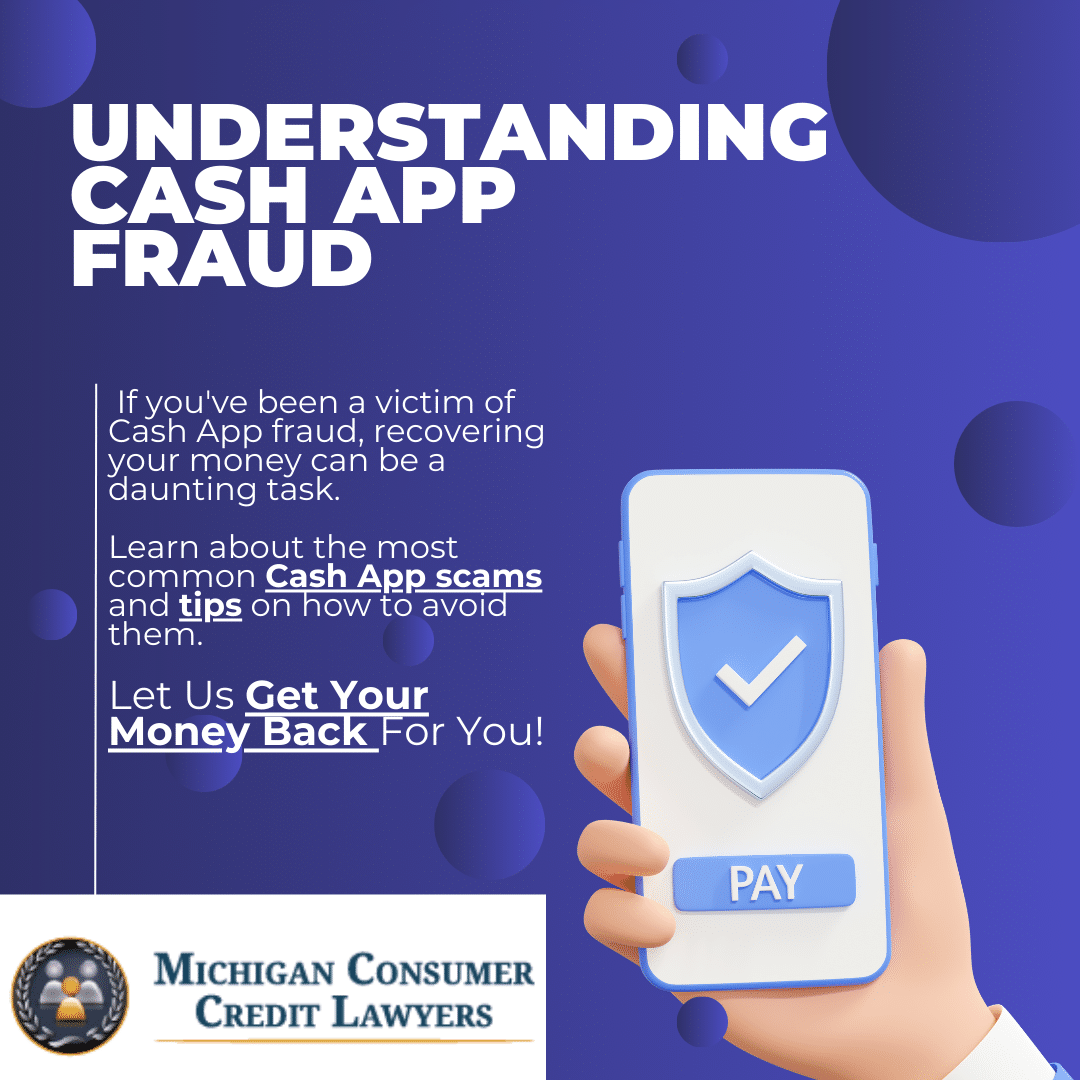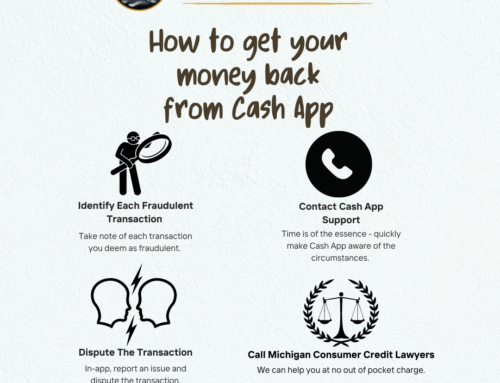If you’ve been a victim of Cash App fraud, recovering your money can be a daunting task. Our law firm can help you at no out of pocket charge. Under the law, the bank must pay our fees and costs in any successful action. Here’s an in-depth look at some of the most common Cash App scams and tips on how to avoid them.
Common Cash App Scams:
- Phishing Scams are where scammers send fake emails, texts, or messages that appear to be from Cash App, asking you to provide personal information or click on malicious links. Never click on links or provide personal information in response to unsolicited messages. Always verify the sender’s authenticity.
- Payment Request Scams are where Fraudsters send fake payment requests posing as friends, family, or legitimate companies. You should always verify requests by contacting the requester through a different method before sending money. Only send payments to people you know and trust.
- Customer Support Scams happen when scammers pose as Cash App customer support representatives and ask for your login credentials or other sensitive information. You should NEVER GIVE YOUR PASSWORD TO ANYONE FOR ANY REASON. Cash App does not have a direct customer service phone line. Do not share your login information or provide personal details to anyone claiming to be Cash App support. Use the official app or website for assistance.
- Fake Cash App Friday Promotions are where Scammers create fake Cash App Friday promotions, promising large sums of money in exchange for small payments or personal information. Verify promotions through the official Cash App channels. Legitimate promotions will never ask you to send money or provide sensitive information.
- Cash Flipping Scams happen when scammers promise to “flip” your cash, meaning they claim they can multiply your money if you send them a certain amount. You know the old axiom: If it sounds too good to be true, it probably is. Legitimate financial transactions don’t offer quick, guaranteed returns.
- Fraudulent Sales where scammers pose as sellers of goods or services, collect payment via Cash App, and then disappear without delivering the promised items. You should only purchase goods and services from trusted and verified sources. Use platforms with buyer protection when purchasing from unknown sellers.
Tips to Protect Yourself
- Enable Security Features
- Two-Factor Authentication: Add an extra layer of security to your account.
- PIN Protection: Set up a PIN or use fingerprint ID to authorize transactions.
- Verify Contacts
- Before sending money, double-check the recipient’s information. Contact them through a different communication method to confirm their request.
- Monitor Account Activity
- Regularly check your account for unauthorized transactions. Report any suspicious activity immediately.
- Educate Yourself
- Stay informed about the latest scams. Follow Cash App’s official channels for updates and advice on avoiding fraud.
- Use Strong, Unique Passwords
- Avoid using easily guessable passwords. Change your password regularly and do not reuse passwords across multiple sites.
- Report Scams
- If you encounter a scam, report it to Cash App support and the relevant authorities. This can help protect others from falling victim to similar schemes.
What to Do If You’ve Been Scammed
- Report to Cash App
- Open the app, navigate to the transaction, and report the issue to Cash App support.
- Contact Your Bank
- If your Cash App is linked to your bank account or credit card, inform your bank about the fraudulent transaction and seek their assistance.
- File a Police Report
- Report the scam to your local law enforcement to document the incident.
- Report to Federal Authorities
- File a complaint with the Federal Trade Commission (FTC) and the Internet Crime Complaint Center (IC3).
Most importantly, call us. We can help you at no out of pocket charge because we can make the bank reimburse you and pay your costs and attorneys’ fees.
If you have been a victim of bank fraud, don’t stay a victim. Let us get your money back for you.
Call us at Michigan Consumer Credit Lawyers at (248) 353-2882 for a free, no obligation consultation. Talk with an attorney today to learn your rights and get free advice. If you have a good case, we will not charge you anything out of pocket to pursue your claim to get your money back from the bank. You can also visit us at our website for more information or email us at [email protected].

(248) 353-2882


